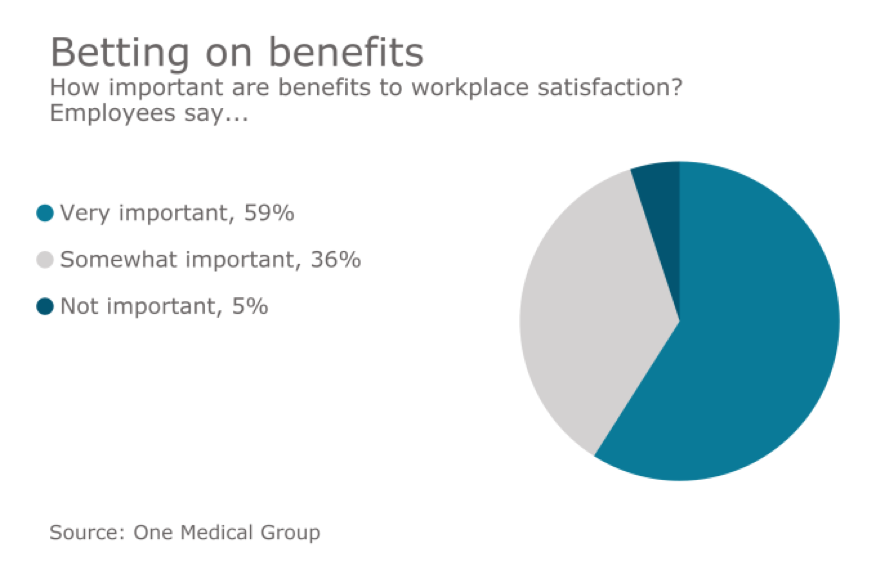Pervasive skills gaps mean that employers can’t count on employees to walk in the door with the skills they need, particularly in entry-level jobs.
At the same time, conventional wisdom warns against investing in so-called “elevator assets” — highly educated workers who might at any time hop on an elevator in their office building, go to the ground floor and walk out. Employer loyalty is at an all-time low. Millennials, who form the largest part of today’s workforce, will change jobs a whopping 15-20 times over their career, research indicates.
But technology has a funny way of proving conventional wisdom wrong.

Millennials — the “pics or it didn’t happen” generation — chase external validation through online recognition of their achievements. Digital badges and credentials, shared on social media, enable savvy employers to offer currency that younger employees value. Millennials famously eschew the corporate perks that cultivated “loyalty” among their predecessors, but they clamor for education as a benefit.
As it turns out, education and retention don’t have to be mutually exclusive — and smart companies are doubling down on next-gen training and educational benefits. Here’s why:
Education costs less than attrition
Millennial turnover costs U.S. companies more than $30.5 billion annually. According to a recent study, employers spend 6-9 months of an employee’s salary to recruit, hire and train his or her replacement, which means replacing someone salaried at $60,000 will cost the company as much as $45,000. Contrast the cost of finding a replacement with the falling costs of online degrees (around $43,000), coding bootcamp credentials ($11,000), or certifications like the “poor man’s MBA” (which costs just $555 and can boost salaries by 20%).
The rate of churn is increasing — the federal quits rate rose 73% between 2009 and 2015. Today, nearly a quarter of employees (33 million in 2015) quit their job every year — though this rate is up to 50% higher in some sectors. The high cost of recruiting and retraining replacements means that decreasing the rate of turnover even marginally can have a significant positive impact. An analysis with financial services firm Discover Financial found $2.73 in savings for every dollar spent on education assistance for call center employees, in part due to the decrease in turnover.
Portability + transparency = retention
Virgin Group founder Richard Branson put it this way: “Train people well enough so they can leave, treat them well enough so they don’t want to.” The idea of giving employees credentials with external value to keep them around may sound counterintuitive, but we’re beginning to see that the right types of credentials can have just that effect.
As credentials make the move from office walls to social networks, they serve as powerful tools for validation, allowing people to showcase what they’ve learned and take pride in the skills they’ve developed. Digital credentials provide an opportunity for companies to create greater employee engagement by delineating learning pathways and showcasing demonstrated skills and abilities — which workers tend to view as a perk, rather than a ticket to the next job.
Credential banking
Counterintuitive as it might seem, smart corporate training programs are actually improving retention by awarding transferrable credits that ladder up to certifications and even degrees. That employee may not use those credits now — but she understands the future value outside the workplace, which encourages her to “bank credits” as she continues to take advantage of training programs.
This concept isn’t new. For decades companies have partnered with institutions to assign academic credit to the training and experience employees gain on the job. The American Council on Education (ACE)’s College Credit Recommendation Service (CREDIT) program has partnered with colleges and universities for over 40 years to provide course credit for training taken outside traditional degree programs. Today, organizations like Walt Disney, Jiffy Lube and AmeriCorps are making it easier for working professionals to request academic credit for workplace training and to share evidence of their achievements online. Chipotle’s partnership with Bellevue University allows aspiring kitchen managers to bank up to 17 credits toward their degree from their corporate management training.
Growing the funnel
The transition to shareable, transparent records of achievement doesn’t just make employees look good — it turns them into guerrilla marketers as they share their credentials with the outside world. With 65% of millennials saying the opportunity for personal development is the strongest influence at their current job, it’s clear that this generation is actively seeking opportunities to learn.
For employers, digital badges are playing the role of “passive recruitment:” increasingly visible to the outside world, they offer job-seekers a window into corporate training programs on social media before they even check a company’s website. Employees play the role of brand ambassador as they promote their achievements on social media. And the more that companies take advantage of digital networks, the more their talent pipeline will expand.
Plenty of ink has been spilled on the value of training and development programs for a fast-paced, increasingly digital world. But employers who worry about education leading to attrition should take heed: there is a new generation in town, and new strategies for providing, promoting and recognizing learning and development will help you meet your goals as well as theirs.
Originally published in Employee Benefit Adviser, April 18, 2017

Rachel Carlson is the co-founder and CEO of Guild Education, a Denver, CO-based startup that provides online classes, programs, and accredited degrees for working adults.

Jonathan Finkelstein is the Founder and CEO of Credly, a platform for digital credentials and open badges.